The WISER Podcast | Season 3 | China Africa Futures | thinking beyond conspiracy
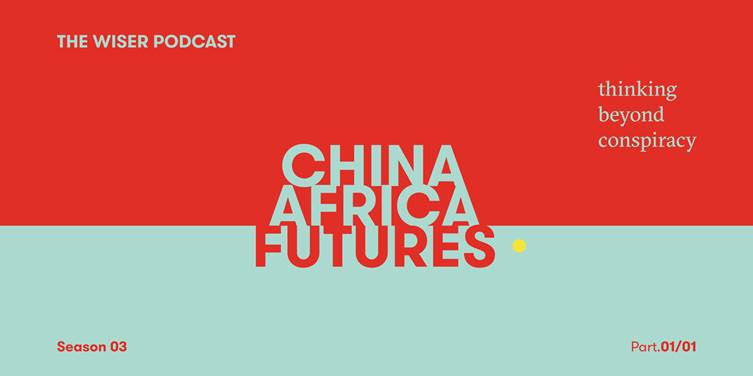
Today we release The WISER Podcast on China Africa Futures : thinking beyond conspiracy.
The episode focuses on some of the most prominent themes in global and local preoccupations with the models of government that China holds out for African states and peoples. We focus, in particular, on the threats and limits of state surveillance for African countries as they show themselves around the COVID19 pandemic, and the growing international concerns about the eYuan, the new digital currency championed by the People's Bank of China.
The podcast is a conversation between Keith Breckenridge (Wits), Iginio Gagliardone (Wits), Mingwei Huang (Dartmouth) and Bulelani Jili (Harvard).
The members of the WISER Podcast team are Sarah Nuttall, Sizwe Mpofu-Walsh, Isabel Hofmeyr, Tinashe Mushakavanhu, Mpho Matsipa, Achille Mbembe and Bronwyn Kotzen.
Podcasts
Reflections on Academic Podcasting | Agata Lisiak and Nicky Falkof
Reflections on Academic Podcasting
WISER Seminar Room, 6th Floor Richard Ward Building
Agata Lisiak (Bard College, Berlin) in conversation with Nicky Falkof (Media Studies, Wits)
Agata Lisiak is a Migration Studies professor at Bard College Berlin, where, amongst many other things, she writes, hosts, and produces Spatial Delight, a podcast about space, politics, and power inspired by geographer Doreen Massey.
 Nicky Falkof is a professor in the department of Media Studies at Wits; she also writes about race and anxiety in the global south, and her most recent book is Worrier State.
Nicky Falkof is a professor in the department of Media Studies at Wits; she also writes about race and anxiety in the global south, and her most recent book is Worrier State.
The WiSER Podcast | Bessie Head's Absorbent Literature by Anneke Rautenbach
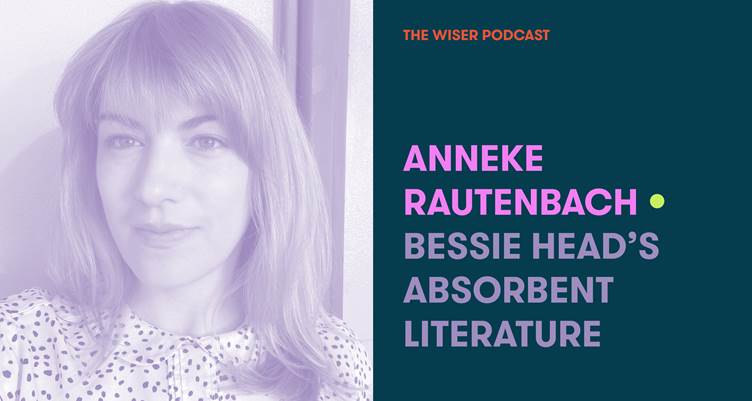
In this week’s episode, Anneke Rautenbach discusses how, when the writer Bessie Head escaped apartheid South Africa and settled in the rural village of Serowe, Botswana, she remained haunted by the violence of her past. In her work on experimental development farms, alongside locals and foreign volunteers, she discovered not only a source of healing, but a subterranean moral philosophy.
Anneke Rautenbach spent time in residence at WiSER in 2022, participated in The WiSER Podcast group and travelled from there to Botswana to conduct archival research at the Bessie Head Papers in Serowe. She is currently a doctoral candidate in the Department of Comparative Literature at New York University, where she is completing a dissertation on the role of the public intellectual in southern Africa. The PhD focuses on flashpoint moments in recent history when language played a particularly dynamic role -- from anticolonial prophecy to nationalist sloganeering to the metaphors of the HIV/AIDS crisis.
The WiSER Podcast Team this year is convened by Sarah Nuttall, sound editing by Sizwe Mpofu-Walsh and designs by Bronwyn Kotzen.
The WiSER Podcast | Cheikh BA | Riverine landscapes in Senegal
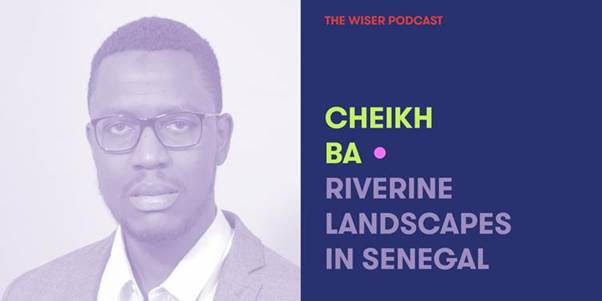
In this episode of The WiSER Podcast, Cheikh BA discusses the Senegal River as an intense node of knowledge making. He discusses how those who live alongside it observe, name and think about its flows, quantities, evolutions, water paths and distribution. He also shows how, in parallel and sometimes in confrontation, the "modern management" of natural resources translates into developmental and technocratic visions. He invites listeners to reflect with him on ways of encountering this riverine landscape, actually or in our imaginations.
Cheikh BA is a Post-Doctoral Fellow in WiSER’s Regions2050 Research Programme and works on local notions of environmental justice, decolonisation of environmental knowledge and the ecological history of territorial governance in West Africa.
The WiSER Podcast Team this year is convened by Sarah Nuttall, sound editing by Sizwe Mpofu-Walsh and designs by Bronwyn Kotzen.
The WiSER Podcast | Caio Simoes De Araujo | Bridging the Bay: Maputo-Katembe
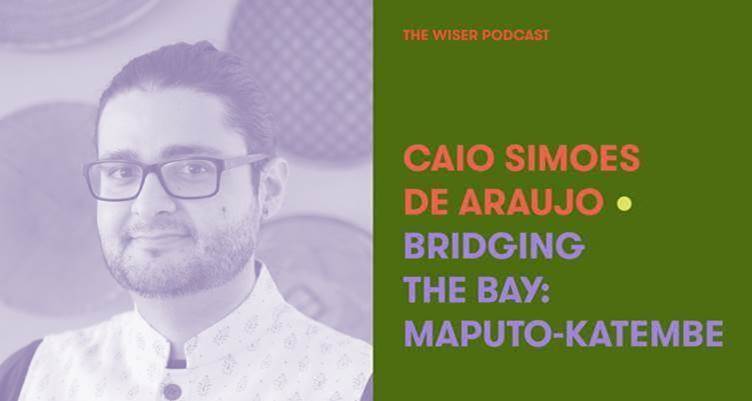
In this episode, Caio Simões de Araújo discusses the politics of infrastructure in Southern Africa, taking as an entry point the Maputo-Katembe bridge, inaugurated in 2018. Araújo argues that the bridge is part of a renewed public investment in infrastructure enabled by Chinese cooperation in Africa. Yet, rather than a straightforward road into the future, the bridge is embedded in a highly complex set of temporal landscapes - ones that warrant close and careful analysis.
Caio Simoes De Araujo is a post-doctoral researcher in the Regions2050 programme at WiSER. He is the editor of A Luta Continua, 40 anos depois: Histórias Entrelaçadas da África Austral (Alcance, 2017). Related to this podcast is a short experimental film "The bridge", which is about the inauguration of the bridge back in 2018. The film is included in the online exhibition, Archive of Forgetfulness: https://archiveofforgetfulness.com
The WiSER Podcast | Season 5 | Episode 1
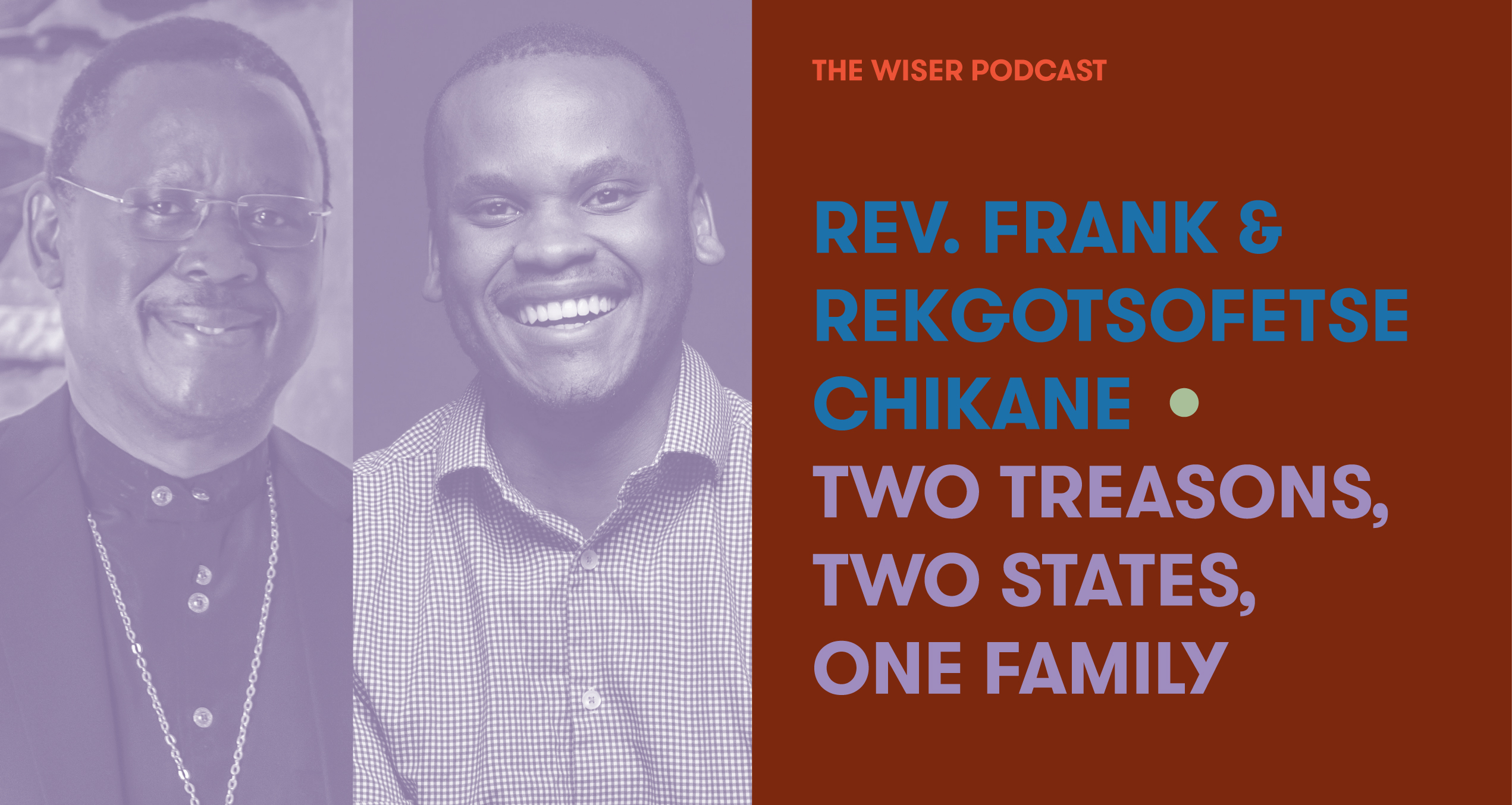
In Episode One of Season Five of The WiSER Podcast, the Reverend Frank Chikane and his son Regotsofetse Chikane, recollect and discuss the moment – separated by 30 years – they were each arrested for treason – by the apartheid and post-apartheid states, successively. As prominent anti-apartheid activist and #FeesMustFall activist respectively, they retell their experiences - and the conversation reflects on the state of a democratic South Africa, the current dangers it faces and what choosing to fight for a more democratic state has meant and will come to mean, then and now.
Regotsofetse Chikane is a Lecturer in the School of Governance and a visiting research fellow at WiSER.
The WiSER Podcast Team this year is convened by Sarah Nuttall, sound editing by Sizwe Mpofu-Walsh and designs by Bronwyn Kotzen.
The WiSER Podcast | Season Five
We are pleased to announce that later this week, Season Five of The WiSER Podcast will be launched. The Institute will release episodes every ten days or so between June and October. The first four seasons of The WiSER Podcast attracted over 28 000 listeners and we invite you to tune in to our new season’s offerings, featuring the work of WiSER researchers. Most episodes will be 15 minutes long and can be listened to via a range of social media platforms including Facebook, Instagram, Apple and Spotify. We encourage you to circulate episodes you find compelling via your own channels. Upcoming episodes include -
Rekgotsofetse Chikane in discussion with his father Rev Frank Chikane focuses on the extraordinary fact that they were both, in different eras of South African politics, accused of treason – by the apartheid and the post-apartheid state – and what these experiences meant for them and for each other.
Tim Wright explores a small and fascinating node of vampire culture in Johannesburg and ways in which Joburg vampires become caught up in the networks and economies of the city.
Caio Simoes De Araujo talks about the new Maputo-Katembe bridge, linking Mozambique and South Africa and what it tells us about shifting, infrastructurally mediated relations in the region, not least by Chinese interests.
Simon van Schalkwyk discusses our new nuclear age, the re-emergence of a long latent Cold War atavism, including the politics of containment and psycho-warfare. Online ‘nuke maps’ mean you can now simulate he effects of nuclear strikes anywhere in the world. He sets the location for Braamfontain, Johannesburg and sees what (would) happen.
And much more….
The WiSER Podcast Team this year is convened by Sarah Nuttall, sound editing by Sizwe Mpofu-Walsh and designs by Bronwyn Kotzen.
The WiSER Podcast | Season Five
In Episode One of Season Five of The WiSER Podcast, the Reverend Frank Chikane and his son Regotsofetse Chikane, recollect and discuss the moment – separated by 30 years – they were each arrested for treason – by the apartheid and post-apartheid states, successively. As prominent anti-apartheid activist and #FeesMustFall activist respectively, they retell their experiences - and the conversation reflects on the state of a democratic South Africa, the current dangers it faces and what choosing to fight for a more democratic state has meant and will come to mean, then and now.
The WISER Podcast | Season 4 | The Collection
This week we release Season 4 of The WISER Podcast. The Season has offered mixed formats as we have responded to a rollercoaster of events: we have pondered on the July uprisings in South Africa, marked Women’s month and the struggle against GBV in this country and elsewhere, celebrated WISER’s 20th anniversary, as well as featured new work on Zimbabwe after Mugabe and on Botswanan artist Meleko Mokgosi’s paintings. Taken together, the Season offers a window into the wide range of WISER’s work, workings and history. All episodes of the final Season of the year are featured at this link: https://wiser.wits.ac.za/
As we close this Season, we would like to express our gratitude for the work done by our WISER Podcast designer, Bronwyn Kotzen. Each week, Bronwyn produces exceptional design work for our next episode, finding a visual language which captures an aspect or more of the episode at hand. One of the best moments for The Podcast Team is awaiting Bronwyn’s banner designs for that week, turning the behind the scenes hard work of making the podcast into a visually rendered reality. Bronwyn is an architect, researcher and writer with a Masters in Architecture from Wits and a Master of Science from the LSE. She is currently working on a PhD entitled Liquid Concrete which traces the flow of cement across sub-Saharan Africa, as a lens through which to examine the relationship between materiality, science, technology, and space. She is also co-editor and project manager on the forthcoming five part book series, Translating Technology in Africa. Sending our warm thanks to Bronwyn from the podcast team – Sarah Nuttall, Sizwe Mpofu-Walsh, Tinashe Mushakavanhu, Isabel Hofmeyr and Achille Mbembe.
The WISER Podcast | Season 04 | The Art of Meleko Mokgosi | Part 2
In this week’s episode we present Part Two of our mini-series on the work of Botswanan artist Meleko Mokgosi by Hlonipha Mokoena of WISER. Last week, Mokoena offered an analysis of Mokgosi’s paintings from multiple perspectives. In today’s episode she speaks to the artist himself, a wide-ranging and fascinating discussion which takes up many of the issues introduced last week.
The members of The WISER Podcast Team are Sarah Nuttall, Sizwe Mpofu-Walsh, Tinashe Mushakavanhu, Isabel Hofmeyr and Achille Mbembe.
The WISER Podcast | Season 04 | The Art of Meleko Mokgosi | Part 1
- 1 of 7
- next ›

